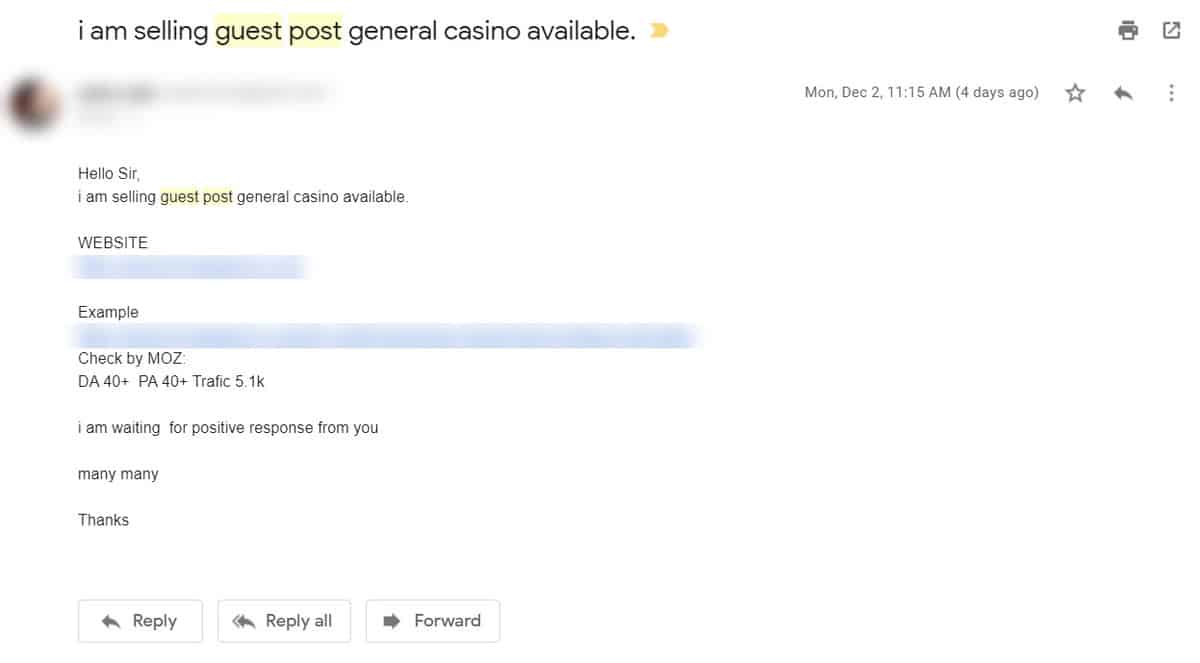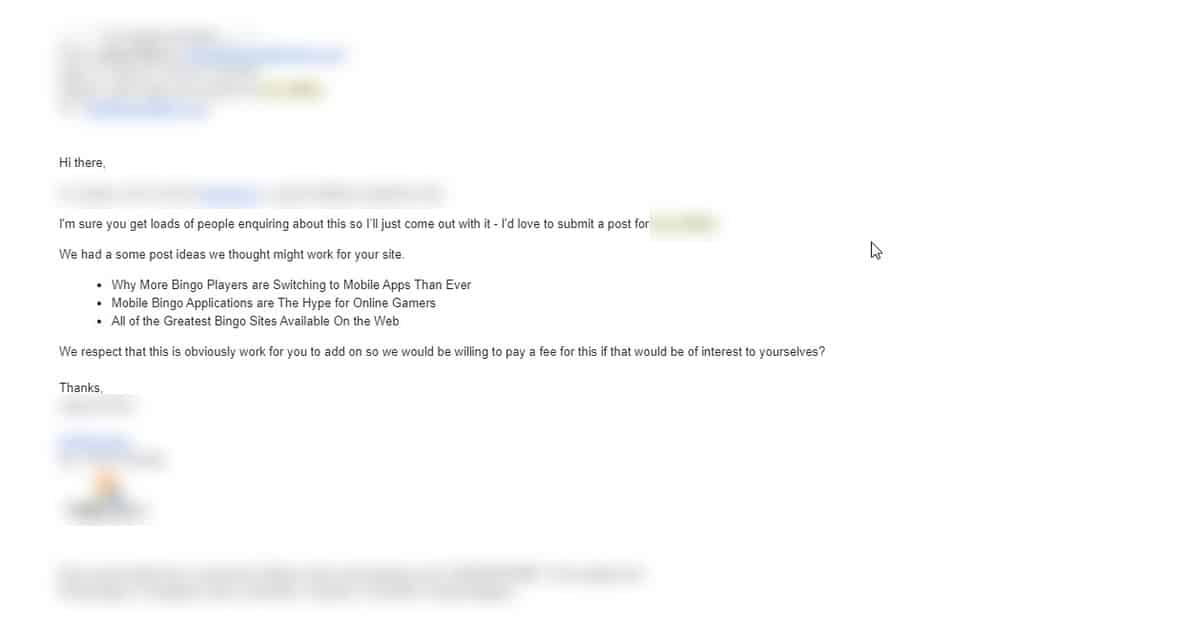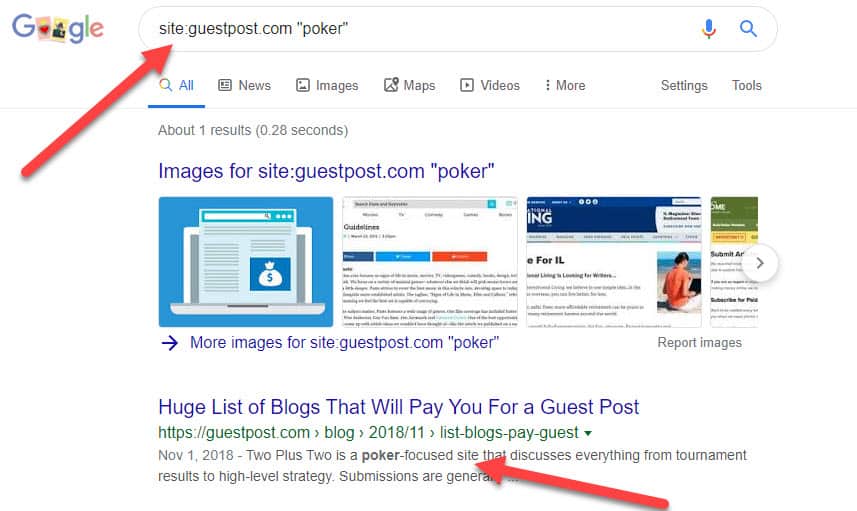A quick guide on what to do about unsolicited guest posts… Analyze the value the guest post emails are offering, such as referral traffic. If there is no value, move them to spam. If the guest post spammer is wanting to post on your website, get them to send an example of content; if the content is low quality, move them to spam, if the content is well-researched and in-depth, you’ve found a great partnership (which is about .034% of guest post emails – and yes, I made up these percentages).
Let’s Dive in a Bit Deeper…
Guest posts, what are they? Why do they exist? Why is my inbox full of emails offering guest posts? These are the burning questions that keep me awake at night, and I am sure that many of you will agree that these tactics do not build trust, nor do they get a good return. However, the guest post spammers out there are still inundating our inboxes with these emails, and I am sure they are making some money from someone that read a low-quality SEO guide on how links are the only factor that matters for your website to appear in the SERPs and you should acquire them at a break-neck speed. I am not saying all guest posting is bad, if done right, it can have a significant boost for visibility in the right niche, as well as be a good source of referral traffic. However, the majority of guest posts won’t give you referral traffic because they exist on PBNs, link farms, and general low-traffic sites that have a decent DA to flaunt.
How do you recognize a guest post email?
At this point in my career, emails such as the one below stick out like a sore thumb, and become pretty easy to recognize as a guest post email:

If you run a casino, you found yourself a niche site! Unfortunately, many of the websites that these guest post spammers offer are deindexed, contain spammy content about pills/porn/poker, and/or have the same layout and theme as 100+ other sites in their network. Guest post spammers are lazy, they don’t have time to create new themes, or even put the sites on different servers so they don’t all have the same IP address. Avoid these like the plague.
However, there are two different versions of these emails, ones asking to sell you guest posts on their network of sites, and ones offering to send you a guest post to place on your blog, which you can see an example of the latter below:

Unless you run a PBN or are really hurting for cash, DO NOT POST THESE ON YOUR COMPANY’S BLOG. If you doubt my suggestion, simply respond to them and ask for the blog post. What you will be sent will more than likely be a 200-300 word article with 3-4 keyword-rich anchor text links pointing to their client’s site. These will not only put you at risk for a penalty from Google (if done too many times), but you will more than likely be shared with the guest posters network of friends who will then inundate you with requests to also post their crap content to your website.
How to Analyze the Value of A Guest Post Blog?
Utilizing tools such as Moz’s Link Explorer or Ahrefs can help you determine if there is any value in terms of the Domain Authority (Moz) or Domain Rating (Ahrefs), which are scores from 1 to 100 that determine a number value of a link, 100 being something like Wikipedia. Take these scores with a grain of salt, since it is very easy for a guest post spammer to acquire newly expired domains with a high DA or DR where they can publish these low-quality articles. Better use of these tools would be to look at the monthly organic traffic estimates for the website, where specific pages rank in SERPs and the top-performing pages on the website. If there are several pages on a guest post website that perform well in search, then you may have a good candidate for a guest post location. The secondary check that I always perform is a combination of things, such as checking to see if the website is indexed and using “site:” search modifiers to check for pages that mention anything spammy such as poker (of which we will now appear). The last check would be a general backlink analysis for the website, which you can review our backlink analysis guide. See below:

If someone is wanting to post a “guest post” to your website’s blog, its as easy as checking the content in a plagiarism checker, or if you’d rather do it manually, you can take phrases from the content and search them in Google (using quotations). It may also be helpful to get examples of other guest posts and their locations that the guest poster has done in the past as a further quality check. If you’re lucky (and you really need to be to get a legit guest post), you might find some worthwhile content to post to your blog. And even if it’s not great quality, its always good to see what opportunities are out there and potentially establish partnerships with others in your niche.
Now… get out there and start marking these guest post emails as spam to help Gmail automatically mark them as spam in my inbox! If you have any questions, please leave a comment or reach out to me on Twitter – @tripphamilton.
JUMP TO A CATEGORY
WEB ANALYTICS | SEARCH OPTIMIZATION | PAID ADVERTISING | COMPANY NEWS










